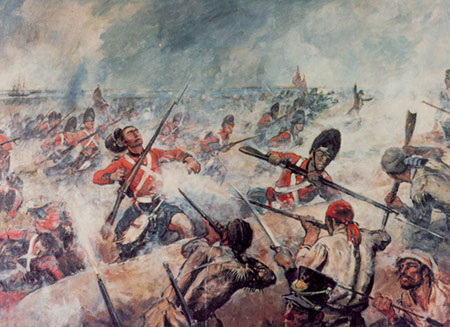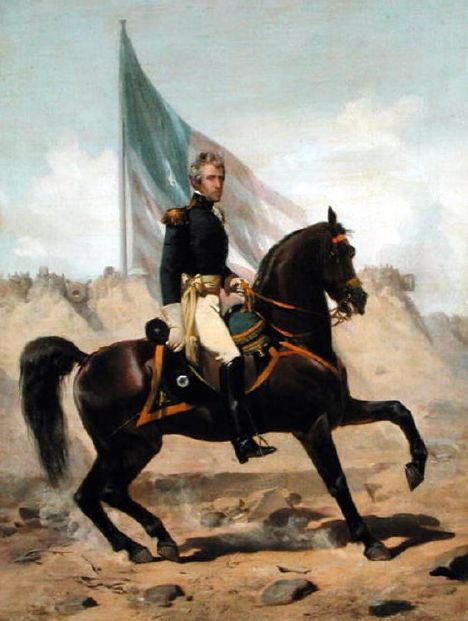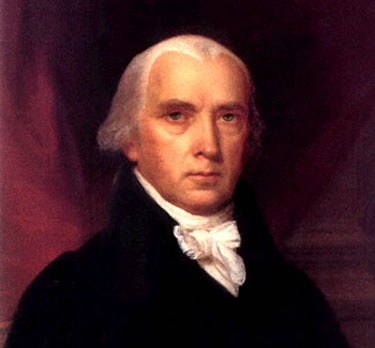|
The
Battle of New
Orleans Andrew
Jackson (1767-1845)
-(American):
American militia general during the War
of 1812 and the related Creek War.
Jackson's best known exploit was the
successful defense of the City of New
Orleans from British attack in the
war's final clash, the Battle of New
Orleans in 1815. Jackson later rode his
fame from the War of 1812 to the
presidency. Andrew Jackson served as
President of the United States from
1829 to1837. General
Andrew Jackson
James Madison
(1751-1836)
-(American):
President of the United States during
the War of 1812. Served as the fourth
President of the United States from
1809 to 1817.
General
Society of the War of
1812--Preserving
the records and other
documents relating to
the war, caring for
its veterans' graves
of veterans, and
encouraging
patriotism among all
Americans. War
of
1812--Articles,
links and reenactment
information. Roster
of Ohio Soldiers in
the War of
1812--Searchable
database of records
for officers and
enlisted men from the
Adjutant General
records. Virtualology:
War of
1812--Features
the text of the
British account of
the capture of
Washington D.C. as
reported in The
Columbian Centinel,
December 7,
1814. War
of
1812--Includes
summary of the war
and brief
descriptions of major
battles. Fort
Erie War of 1812
Re-enactment
Units--Aid
to all military units
who portray the
period in time known
as the War of
1812. Battles
and Campaigns of the War of
1812 Battles: 1812
U.S. Offensive: DATES
OF CONFLICT: BEGAN:
July 18, 1812--The U.S.
Congress declared war on
Britain. ENDED:
Diplomatic
& Legal End: December,
1814, The signing of the
Treaty of Ghent officially
ended the conflict, though
several battles would still be
fought. Military
End: February 20, 1815--In
the last military action of
the war, the USS
Constitution defeated
two British warships, the HMS
Cyane and the HMS
Levant. This occurred
almost two months after the
Treaty of Ghent actually ended
the war. Slow communications
prevented these ships from
knowing about the war's
end. Predecessor
Conflicts: (Prior related
conflicts) The
American War of
Independence
(1775-1783) Chesapeake
Incident
(1807)
The
Napoleonic Wars
(1800s)
*
U.S.-British
Conflicts: Oregon
Territory Dispute
(1840s) "Pig
War" (1800s) Venezuela
Border Dispute
(1890s) "The
History Guy" is a Registered Trademark. Contact
the webmaster |


